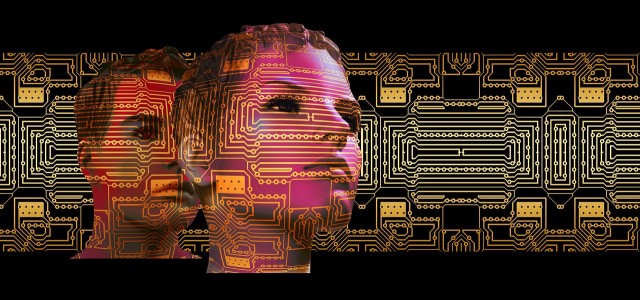Do you know that data entry jobs have been crucial in many industries for decades? Data entry provides the foundation for organized and accurate data management. Businesses worldwide have embraced data entry, creating more jobs in the data entry market.
But, the emergence of artificial intelligence (AI) has greatly impacted these roles. This has led to notable changes in how data entry tasks are performed.
In this blog post, we will explore the impact of artificial intelligence on data entry jobs. We will also discuss the implications of this technology on the future of data entry work.
READ ALSO: The Role of Data Entry In Business Intelligence
What is AI?
AI is a type of technology. It allows computers to learn and think like humans. AI can do tasks that normally require human intelligence. This includes things like understanding language, recognizing images, and making decisions.
AI works by using algorithms. Algorithms are a set of steps to solve a problem. AI algorithms allow computers to learn from data. The more data the computer has, the better it can understand.
AI can do many things. It can recognize speech. It can translate languages. Also it can even drive cars. AI is becoming more advanced every day.
READ ALSO: Why AI will never replace humans: The creativity and intuition
What is the impact of AI on data entry?
AI is starting to have an impact on data entry jobs. AI systems can now do data entry tasks. They can enter information into computer systems. They can also validate and correct data.
AI can do data entry tasks faster and more accurately than humans. This is because AI always gets energized and energized. It can work 24 hours a day, 7 days a week.
AI is also getting better at understanding human language. This means AI can interpret handwritten notes and convert them to digital text. It can also understand speech and turn it into text.
The Rise of Robotic Process Automation
One way AI is impacting data entry is through robotic process automation (RPA). RPA uses software robots to automate repetitive tasks. This includes things like data entry, form filling, and invoice processing.
RPA systems can work much faster than humans. They can also work 24/7 without breaks. This makes them very efficient at data entry tasks.
RPA systems are becoming more advanced. They can now handle more complex data entry tasks. This includes extracting data from unstructured documents, like PDFs and emails.
READ ALSO: Data Entry Tools and Software: A Full Guide
What are the benefits of AI in data entry?
There are many benefits to using AI for data entry. First, it can improve accuracy. AI systems make fewer mistakes than humans. This is especially important for tasks that require high accuracy, like financial data entry.
AI can also improve productivity. AI systems can work much faster than humans. They can complete data entry tasks in a fraction of the time.
Another benefit can be seen in consistency. AI systems will perform tasks the same way every time. This is important for maintaining data quality and integrity.
Finally, AI can reduce costs. Automation can reduce the need for human data entry staff. This
can lead to high-cost savings for businesses.
READ ALSO: How AI Technology is Reshaping the Workforce
What are the challenges of AI in data entry?
While AI has many benefits for data entry, there are also some challenges. One challenge is the cost of implementation. Deploying AI systems can be expensive, especially for small businesses.
Another challenge is the need for training data. AI systems need large amounts of high-quality data to learn from. This data can be costly and time-consuming to acquire.
There are also concerns about job displacement. As AI systems become more advanced, they could replace human data entry workers. This could lead to job losses and economic disruption.
Finally, there are concerns about privacy and security. AI systems that handle sensitive data, like personal or financial information, need to be secure and compliant with regulations.
READ ALSO: Data Entry Security: How to Protect Data From Cyber Threats
What is the future of data entry jobs?
So, what does the future hold for data entry jobs? AI will likely continue to have a notable impact. AI-powered automation will likely replace many routine data entry tasks.
However, this doesn’t mean that data entry jobs will disappear entirely. There will still be a need for human oversight and intervention. AI systems may not be able to handle all data entry tasks, especially those that require complex judgment or decision-making.
In the future, data entry jobs may evolve to focus more on tasks that AI systems cannot do as well, like customer service, analysis, and problem-solving. Data entry workers may also need to develop new skills, like the ability to train and manage AI systems.
Overall, the impact of AI on data entry jobs is likely to be much. But it’s important to remember that AI is a tool, and it can be used to augment and empower human workers, not just replace them. With the right approach, AI and data entry workers can work together to create more efficient and effective data management processes.
READ ALSO: Data Entry vs Data Science: What is the Difference?
Conclusion
In conclusion, artificial intelligence has had a good impact on data entry jobs. It has revolutionized how data is managed and processed.
AI technologies are transforming the way data entry work is performed. It does this by automating repetitive tasks, improving data accuracy, and increasing efficiency.
While challenges and opportunities exist, the future of data entry jobs is ripe. But it’s for those with potential who are willing to adapt and embrace the opportunities that AI presents.







